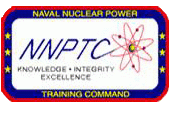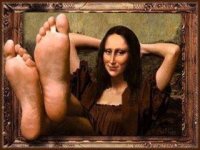- Posts: 15745
- Thank you received: 320
The Forgotten History of Muslim Scientists
- ScienceChic
-
 Topic Author
Topic Author
- Mountain Champion
-

http://www.scientificamerican.com/artic ... scientists
The Forgotten History of Muslim Scientists [Slide Show]
Without the flourishing of science in Muslim lands in the past, the modern world might not have algorithms or algebra
By David Biello | March 2, 2011
Slide Show: http://www.scientificamerican.com/slide ... scientistsAlhazen is just one of a multitude of scientists working in the Muslim world in centuries past who made significant contributions to the advancement of science. In fact, the golden age of Muslim science lasted nearly a millennium, as depicted in a traveling exhibition, "1001 Inventions," now showing at the New York Hall of Science.
About the exhibit: http://www.1001inventions.com/
http://www.youtube.com/watch?v=97c69Q4_cwI
1001 Inventions Muslim Heritage Exhibition
"Now, more than ever, the illusions of division threaten our very existence. We all know the truth: more connects us than separates us. But in times of crisis the wise build bridges, while the foolish build barriers. We must find a way to look after one another as if we were one single tribe.” -King T'Challa, Black Panther
The truth is incontrovertible. Malice may attack it. ignorance may deride it, but in the end, there it is. ~Winston Churchill
Please Log in or Create an account to join the conversation.
- bailey bud
-

- Mountain Legend
-

- Posts: 1849
- Thank you received: 0
There is one curious thing about the list of great inventions, though
most of the innovations came from the dawn of Islam.
Islamic culture has a seems to have moved from innovative thinking to more dogmatic thinking.
Most of the innovations by Muslims today - come from Muslims who live and work in a western context. Ideas borne out of the deeply Islamic context are few and far between.
One of the world's most sophisticated geometric designs - the minbar of Saladin (Jerusalam) - could not be easily replicated, today - due to the absence of scientific, analytic thinking.
Please Log in or Create an account to join the conversation.
- ScienceChic
-
 Topic Author
Topic Author
- Mountain Champion
-

- Posts: 15745
- Thank you received: 320
http://www.sciencemag.org/content/321/5 ... 4cb2ce754a
EDITORIAL: Science in Muslim Countries
Ismail Serageldin* - director of the Library of Alexandria, Alexandria, Egypt.
Science 8 August 2008:
Vol. 321 no. 5890 p. 745
DOI: 10.1126/science.1162825
With more than a trillion dollars in cash and a population of over a billion people, the Muslim world should be poised for a remarkable scientific explosion. Yet despite some very high-profile projects in the Gulf, including the building of massive state-of-the-art facilities for research across all disciplines (and serious efforts elsewhere), the reality is that Muslim countries tend to spend less on scientific research itself, as distinct from buildings and equipment, as compared to other countries at the same income scale. Furthermore, even where funding for science has been available, the results in terms of output—research papers, citations, and patents—are disappointingly low. Why?
Throughout the Muslim world, we are witnessing an increasingly intolerant social milieu that is driven by self-appointed guardians of religious correctness, who inject their narrow interpretation of religion into all public debates. Rejecting rationality or evidentiary approaches, they increasingly force dissenting voices into silence and conformity with what they consider acceptable behavior. Of course, Muslim zealots are not alone in challenging the scientific enterprise; in the United States, battles over evolution and creationism continue to rage.
There is a central core of universal values that any truly modern society must possess, and these are very much the values that science promotes: rationality, creativity, the search for truth, adherence to codes of behavior, and a certain constructive subversiveness. It is the content of scientific work that matters, not the persons who produced it, regardless of the color of their skin, the god they choose to worship, the ethnic group they were born into, or their gender. These are the values of science, but even more, they are societal values worth defending, not just to promote the pursuit of science but to have a better and more humane society.
The future can be bright, but it requires a commitment to fight for the values of science and to reject obscurantism, fanaticism, and xenophobia. These efforts will not be easy, but they constitute a major and necessary step toward liberating minds from the tyranny of intolerance, bigotry, and fear, and opening the doors to free inquiry, tolerance, and imagination.
There are a couple of promising starts, like SESAME http://www.sesame.org.jo/ and KAUST http://www.kaust.edu.sa/ , but the percentage of GDP spent on research needs a serious boost. Especially if they are to effectively manage increasing environmental issues, food shortages, etc through innovation.
US efforts to improve collaboration between our nations, and increase resources for them will help tremendously.
http://www.sciencemag.org/content/326/5 ... 7764e7d296
U.S. Takes Steps to Use Science To Improve Ties to Muslim World
Robert Koenig
Science 13 November 2009:
Vol. 326 no. 5955 pp. 920-921
DOI: 10.1126/science.326.5955.920
http://www.sciencemag.org/content/328/5 ... 7764e7d296In a surprise announcement, U.S. Secretary of State Hillary Clinton last week named three prominent scientists as special envoys to assess the potential for scientific partnerships with Muslim-majority countries. The move is the first concrete step in a broader U.S. effort to expand the role of science in diplomacy.
Clinton's speech to the Forum for the Future, a group that fosters dialogue between countries in the region and industrialized nations, builds upon Obama's highly publicized 4 June speech at Cairo University that called for a “new beginning” in relations with the Muslim world. Within the scientific realm, the president also promised to establish at least three technology “centers of excellence” in the Middle East, North Africa, and Muslim-majority regions in Asia, an idea now under discussion by an interagency group.
U.S. Effort to Reach Out to Muslim-Majority Nations Begins to Bear Fruit
Richard Stone
Science 11 June 2010:
Vol. 328 no. 5984 p. 1339
DOI: 10.1126/science.328.5984.1339
The expedition ushers in a new era in science cooperation between Indonesia and the United States. The two countries have just inked their first S&T agreement, which is now awaiting ratification by Indonesia President Susilo Bambang Yudhoyono. And two high-profile initiatives are in the works. In the coming weeks, the United States is expected to unveil an extensive education package, including university partnerships and dedicated funds for S&T collaboration; funding for the package could top $150 million. It will also tap Indonesia to host a regional center for climate change, one of the centers of excellence for the Muslim world that U.S. President Barack Obama promised to establish in a landmark speech in Cairo last year.
Other signs of a closer relationship include an annual Frontiers of Science meeting that the Indonesian Academy of Sciences (AIPI) and the U.S. National Academies intend to launch next year to spark collaborations between top young scientists. And an Indonesian-U.S. team is now drilling ice cores from a tropical glacier (Science, 28 May, p. 1084). “This whole spectrum of activities will strengthen ties between our two countries,” says Jason Rao, a senior policy analyst at the White House's Office of Science and Technology Policy.
"Now, more than ever, the illusions of division threaten our very existence. We all know the truth: more connects us than separates us. But in times of crisis the wise build bridges, while the foolish build barriers. We must find a way to look after one another as if we were one single tribe.” -King T'Challa, Black Panther
The truth is incontrovertible. Malice may attack it. ignorance may deride it, but in the end, there it is. ~Winston Churchill
Please Log in or Create an account to join the conversation.
- FredHayek
-

- Mountain Legend
-

- Posts: 30200
- Thank you received: 178
Thomas Sowell: There are no solutions, just trade-offs.
Please Log in or Create an account to join the conversation.
- major bean
-

- Mountain Legend
-

- Posts: 2612
- Thank you received: 0
Let us consider literature. Of all of the books of the world, the Rubaiyat of Omar Khayyam, in my opinion, is among the greatest. Khayyam was born AD 1048 in Persia (Iran). This was 450 years after Muhammad's revelations in AD 610. He was a mathematician, philosopher, astronomer, physician, Sufi and poet. He wrote treatises on mechanics, geography, and music. But Khayyam was not a Muslim.
In light of this, we cannot make the assumption that inventors were Muslim just because of their nativity. We must not accept a premise just because it is put forth as obvious evidence for a particular conclusion.
Regards,
Major Bean
Please Log in or Create an account to join the conversation.
- bailey bud
-

- Mountain Legend
-

- Posts: 1849
- Thank you received: 0
This was 450 years after Muhammad's revelations in AD 610. He was a mathematician, philosopher, astronomer, physician, Sufi and poet
Ummmmm - want to look up the word "Sufi" in your dictionary?????
Please Log in or Create an account to join the conversation.
- major bean
-

- Mountain Legend
-

- Posts: 2612
- Thank you received: 0
Regards,
Major Bean
Please Log in or Create an account to join the conversation.
- pineinthegrass
-

- Mountain Legend
-

- Posts: 2836
- Thank you received: 25
Regarding my own experience, my last company was a Silicon Valley start-up semiconductor firm. It was founded by a group that included many Egyptian Muslims. At the time I had no idea and didn't care, I just assumed they were Middle-Eastern. Over time I learned they were Muslim, not that it mattered. At least five of our founders (and probably more) held PhDs from western countries, and I know three had PhDs from Caltech, Stanford (was, and still is an engineering professor at Stanford), and the University of Calif (now an engineering/computer science professor at American University in Cairo).
Our main founder holds over 40 patents, as does our original head of design. The others hold many patents as well. They all had worked at various Silicon Valley companies, and later founded a few new ones. My company eventually went public.
Working there was no different than working at any other semiconductor company that I was involved with. We had similar benefits, and similar non-discriminating hiring policies. The only thing I ever noticed about their religious beliefs was when we would attend various lunches or dinners. Some wouldn't drink, but some would, joking that it was a special occasion. Many, maybe all of them did fast during Ramadan.
One funny thing that happened was I hired a guy who used to work for me at another company. His last name was Mubarak. A couple of the founders asked me if he could possibly be related to that other Mubarak. They were just joking, but it was clear they didn't like Mubarak at all. Anyway, the guy I hired was Lebanese (gasp, another Arab!), and it turned out he was a Christain (again, not that it mattered or was ever discussed or known during his hiring).
Please Log in or Create an account to join the conversation.
- kresspin
-

- User is blocked
-

- Posts: 1077
- Thank you received: 0
Please Log in or Create an account to join the conversation.
- bailey bud
-

- Mountain Legend
-

- Posts: 1849
- Thank you received: 0
(many describe pre-revolution Iran as resembling the things Khyyam wrote about)
Some of the most ornate hand-made rugs show a tribute to him.
Please Log in or Create an account to join the conversation.






